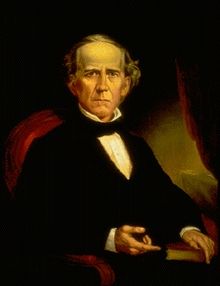
Back چوزيف اى. وريجت ARZ جوزف ای. رایت AZB Joseph A. Wright German جوزف ای. رایت Persian ג'וזף רייט (מושל אינדיאנה) HE Joseph A. Wright Hungarian Joseph A. Wright Swedish
Joseph Albert Wright | |
|---|---|
 | |
| United States Senator from Indiana | |
| In office February 24, 1862 – January 14, 1863 | |
| Appointed by | Oliver P. Morton |
| Preceded by | Jesse D. Bright |
| Succeeded by | David Turpie |
| United States Envoy Extraordinary and Minister Plenipotentiary to Prussia | |
| In office September 3, 1865 – May 11, 1867 | |
| President | Andrew Johnson |
| Preceded by | Norman B. Judd |
| Succeeded by | George Bancroft |
| In office September 3, 1857 – July 1, 1861 | |
| President | James Buchanan |
| Preceded by | Peter Dumont Vroom |
| Succeeded by | Norman B. Judd |
| 10th Governor of Indiana | |
| In office December 5, 1849 – January 12, 1857 | |
| Lieutenant | Jim Lane Ashbel P. Willard |
| Preceded by | Paris C. Dunning |
| Succeeded by | Ashbel P. Willard |
| Member of the U.S. House of Representatives from Indiana's 7th district | |
| In office March 4, 1843 – March 3, 1845 | |
| Preceded by | Henry S. Lane |
| Succeeded by | Edward W. McGaughey |
| Member of the Indiana House of Representatives | |
| In office 1832 | |
| Personal details | |
| Born | Joseph Albert Wright April 17, 1810 Washington, Pennsylvania |
| Died | May 11, 1867 (aged 57) Berlin, Prussia |
| Political party | Democratic |
| Spouses | Louisa Cook
(m. 1831; died 1852)Harriet Burbridge
(m. 1854; died 1855)Caroline Rockwell (m. 1863) |
| Children | 4 |
| Alma mater | Indiana University Bloomington |
Joseph Albert Wright (April 17, 1810 – May 11, 1867) was the tenth governor of the U.S. state of Indiana from December 5, 1849, to January 12, 1857, most noted for his opposition to banking. His positions created a rift between him and the Indiana General Assembly who overrode all of his anti-banking vetoes. He responded by launching legal challenges to the acts, but was ruled against by the Indiana Supreme Court. The state's second constitutional convention was held during 1850–1851 in which the current Constitution of Indiana was drafted. He was a supporter of the new constitution and gave speeches around the state urging its adoption. He was opposed throughout his term by Senator Jesse D. Bright, the leader of the state Democratic Party.
After his term as governor, he was appointed to serve as United States Envoy Extraordinary and Minister Plenipotentiary to Prussia where he served until the outbreak of the American Civil War. Although he was a Democrat, he was openly pro-Union during the war, and was elected to serve as a United States senator, filling the term of Copperhead Jesse D. Bright, who was expelled from the Senate for disloyalty. Following the war he was reappointed to his ambassadorial post where he remained until his death in Berlin, Prussia.
© MMXXIII Rich X Search. We shall prevail. All rights reserved. Rich X Search